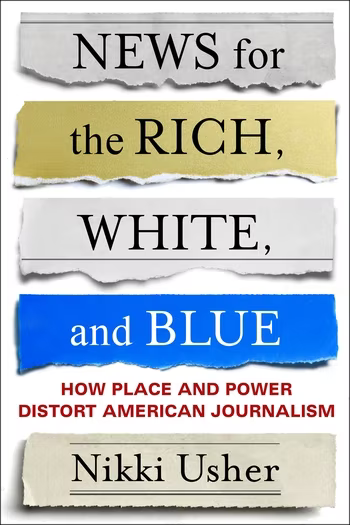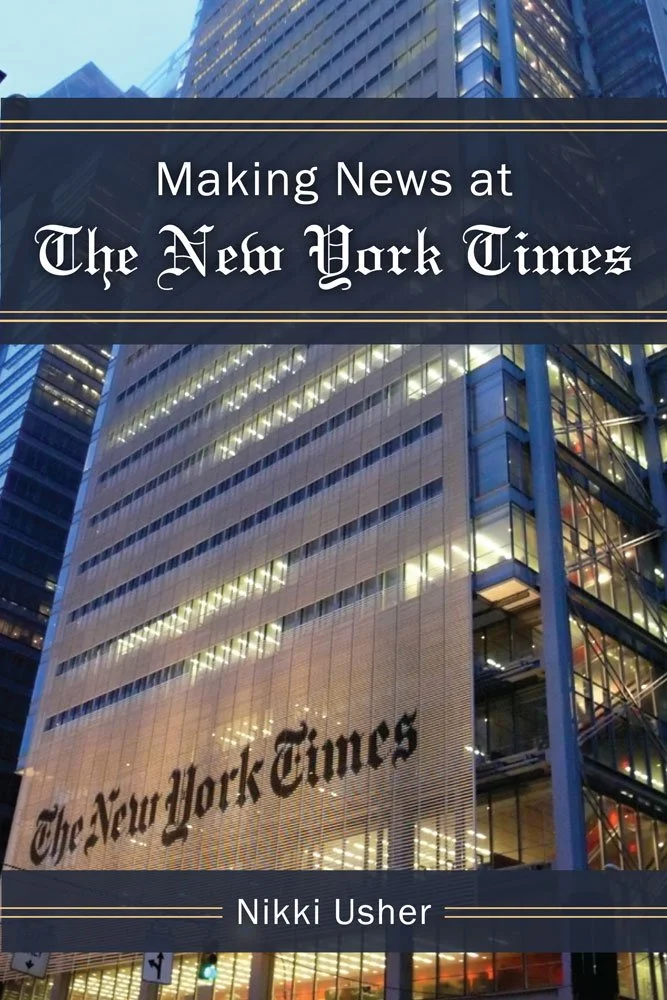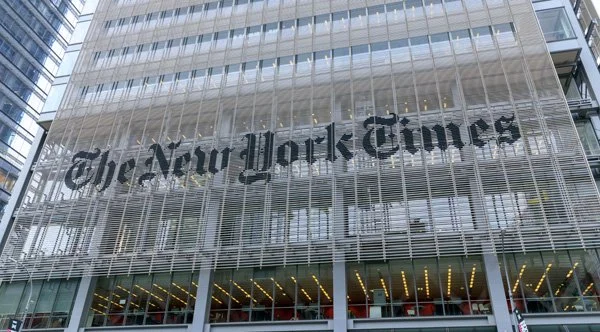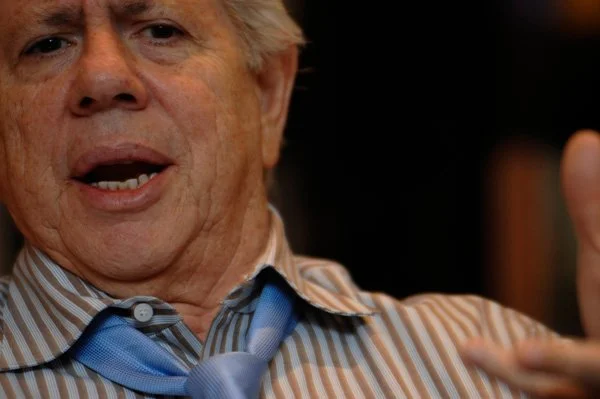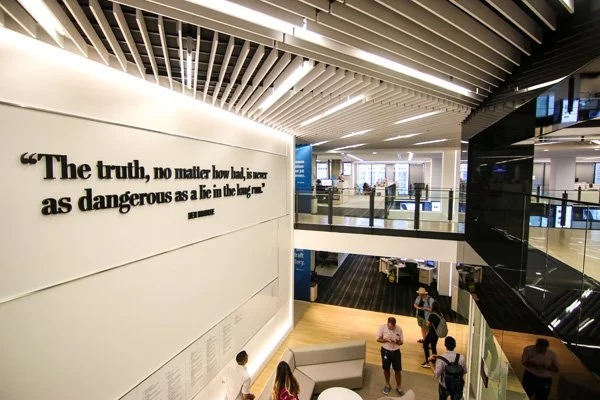Broken News
The Fourth Estate is on life support. Saving it will require new models for doing journalism.
Read
Newsrooms are shrinking, hedge funds are buying up local papers and clickbait is shaping more and more what you know about the world. What the heck is happening to the news business — and what does this spell for the future of democracy? Journalism professors Jay Rosen and Nikki Usher say the internet isn’t all to blame: Journalists, they argue, need to get more creative about who they reach, what they cover and how they fund their work.
Usher is particularly concerned about the focus mainstream journalism places on issues that matter to, for the most part, rich white liberals — a demographic that matches the majority of editors, producers and writers. But diversity in newsrooms, while indispensable to reaching a wider public with richer context, often comes at the price of checking your personal experiences at the door, Rosen says. The upshot, contrary to popular belief, is that the primary operable bias in the media is corporate profit, not partisan politics.
Journalists, meanwhile, are traditionally assimilated into a culture of faux neutrality that tends to obscure even the democratic ideals that should, by definition, underlie their profession. Instead, our guests tell Will and Siva, journalists might experiment with new business models; they could be encouraged to embrace their own perspectives; they could be more honest about how those perspectives inform and enrich their work; and they could cover elections by beginning with a question that places a “citizens’ agenda” at the fore: What do voters want the candidates to be talking about?
Meet
Nikki Usher is a professor of journalism at the University of Illinois Urbana-Champaign who focus on digital technologies and their intersection with politics, economics and the news media. Usher is the author of three books: News for the Rich, White, and Blue: How Place and Power Distort American Journalism (Columbia University Press, 2021); Interactive Journalism: Hackers, Data, and Code (University of Illinois Press, 2016); and Making News at the New York Times (University of Michigan Press 2014). Follow Usher on Twitter @nikkiusher.
Jay Rosen is media critic and journalism professor at New York University, where he has been on the faculty since 1986. Rosen’s 1999 classic What Are Journalists For? (Yale University Press) helped pioneer the civic journalism movement. More recently has he been blogging at PressThink, a project of NYU’s Arthur L. Carter Journalism Institute. His thoughts on the news business and practice of journalism appear frequently in the popular press, especially the Huffington Post. Follow Rosen on Twitter @jayrosen_nyu.
ased on years of field research, News for the Rich shows how digital advertising has been killing local news, even as well-heeled survivors of the journalism downturn, like The New York Times, serve increasingly elite and scattered cosmopolitan audiences — not real communities.
In an essay for Political Communication in June 2020, Usher considered the complex role the Times plays in setting standards and limits in journalistic practice, at home and around the world.
Earlier, Usher conducted months of fieldwork at the Times in the pathbreaking ethnography Making News, which looks at changes in the journalism landscape brought on by the demands of digital production and constant deadlines.
Rosen recently answered some questions from journalism philanthropist Craig Newmark, including, “What did the trustworthy press learn from the 2016 election?” Among those hard lessons, Rosen writes on his PressThink blog, is that the news media were susceptible (surprise!) to a ratings bias; and, he says, they were out of touch with American voters living outside metropolitan centers.
At the turn of the century, Rosen offered a strong defense of civic — or “public” journalism — in What Are Journalists For. Dispensing with the fantasy that the news is simply a straight reporting of facts, Rosen argues instead that journalism should promote the public good, deliberation, problem-solving and a critical understanding of social issues.
In some notable essays for HuffPost, Rosen calls out journalists for their complicity in producing polarization, and he questions the conventions that say news reporting is not and shouldn’t be a political act.
Rosen appeared on The Daily Show with Trevor Noah in 2018 to promote The Correspondent, an English-language Netherlands-based news outlet with an ad-free membership model. The Correspondent later shut down, citing pandemic woes and miscalculations about the interest its readers had in transnational “unbreaking news.”
Learn
The New York Times announced last month that Joe Kahn will replace Dean Baquet as executive editor, who is stepping down in June after an eight-month term. Like many observers, John Harris of Politico sees this as a case of “bland ambition.”
Kahn is the son of one of the founders of the Staples office supply chain. New York magazine describes him as an old-school company man picked to lead the Times while it is grappling with how to cover sustained assaults on democracy itself in the age of Donald Trump.
For a heart-wrenching tale of what is happening to local news, go no further than the story of the Capital Gazette in Annapolis, Md. The staff members who survived a mass shooting in their own newsroom — and covered the tragedy they witnessed — are facing buyouts at the hands of the paper’s new owners: Alden Global Capital.
McKay Coppins of the Atlantic detailed the low-down on Alden, a hedge fund that controls more than 200 newspapers across the country. Its chief business strategy is to aggressively cut costs and suck a paper dry before closing it down and moving on to the next target.
Still, the Atlantic has also chronicled how some local papers are surviving and even thriving, in places from Mississippi to Maine where owners see the value of the building community and aren’t looking for chart-busting profits.
Robot journalism, meanwhile, is growing at a breakneck pace, according to the industry bulletin Market Watch.
Reporting on a particularly bad week of merger announcements and failed experiments in news gathering, columnist Joel Mathis says go out and subscribe to your local paper to support unglamorous work that saves you money and improves your town — before it’s too late.
The news business as we know it faces existential threats, but it remains attractive to many young people. In 2019, Education Week reported a significant uptick in enrollment in j-courses. Indeed, 30 percent of teachers surveyed said they saw a surge of student interest in the field.
For more interesting facts and figures on the state of the Fourth Estate, check out this blog post from the journalism recruitment platform Letter.ly.






